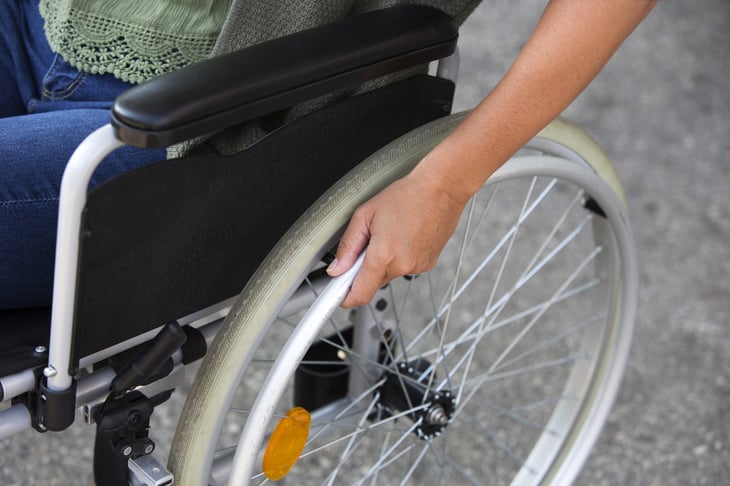
It’s common to think of Social Security as money you receive in retirement, but the program is actually much broader. Through the Social Security Administration, the government provides payments to spouses, children and those with disabilities, among others.
Here’s a closer look at some benefits of Social Security that you may have missed.
1. Spousal benefits via a current husband or wife

Of all the additional benefits offered by Social Security, spousal benefits may be the best known. Spouses can receive as much as half of their husband’s or wife’s monthly benefit. Even stay-at-home spouses without their own work history can claim benefits in this way.
You can begin claiming spousal benefits as early as age 62 although benefits are reduced if payments begin before your full retirement age.
People can also receive spousal benefits at any age if they are caring for a child who is disabled or younger than age 16 and who is receiving benefits from the spouse’s record.
If you are entitled to your own benefits as well as spousal benefits, you will receive an amount equal to whichever benefit level is greater.
2. Spousal benefits via an ex-spouse

Even if you are divorced, you may be entitled to spousal benefits. To receive these benefits, all the following must apply to your situation:
- Your ex-spouse is entitled to receive Social Security benefits.
- You were married at least 10 years to your ex-spouse.
- You are unmarried now.
- You are at least 62 years old.
- The benefit that you are entitled to receive based on your own work is less than the benefit you would receive based on your ex-spouse’s work.
Claiming spousal benefits as a divorced person does not affect your ex-husband or ex-wife’s benefit amount. It also doesn’t affect any benefits their current spouse can receive should they have remarried.
3. Survivor’s benefits for widows and widowers

If your husband or wife dies, you may still be able to receive up to 100% of their Social Security retirement benefits. Divorced spouses may also be able to receive survivor’s benefits if they were married for at least 10 years and are now unmarried.
Most widows and widowers can begin claiming survivor’s benefits as early as age 60. Those who have a disability and became disabled prior to or within seven years of their spouse’s death can start benefits as early as age 50. What’s more, widows and widowers or any age can receive survivor’s benefits if they are caring for a deceased worker’s child who is younger than age 16 or disabled.
Be aware that if you remarry before age 60 — or age 50 if you’re disabled — you cannot receive these survivor’s benefits. As with spousal benefits, if you are receiving survivor’s benefits and begin your own retirement benefits, you’ll receive whichever amount is higher.
4. Survivor’s benefits for children

Spouses aren’t the only ones entitled to survivor’s benefits. Children can receive payments from a deceased parent’s record as well.
Survivor’s benefits are available to children up to age 18, or age 19 for those still attending elementary or secondary school full-time. Benefits may extend beyond that if a child becomes disabled and remains disabled before age 22.
Depending on the circumstances, grandchildren and stepchildren may also be eligible for these benefits.
5. Parent’s benefits

Parents who depended on their children for financial support may be eligible to receive benefits from Social Security should that child die.
To be eligible for Social Security Parent’s Benefits, you must meet several criteria, including the following:
- The deceased worker must have enough work credits to qualify for Social Security benefits.
- You must be at least 62 years old and, in most cases, cannot have married after the worker’s death.
- You must have received at least one-half of your support from the deceased worker at certain points in time.
- You were the natural parent or became the legal adoptive parent or stepparent prior to the worker turning 16 years old.
- You are not eligible for a retirement benefit from Social Security that exceeds the parent’s benefit.
6. Disability benefits

More than 8.5 million people receive monthly benefits through the Social Security Disability Insurance program. To receive benefits, people must have a work history that makes them eligible for Social Security and be unable to work now because of a medical condition that is expected to last at least a year or end in death.
The process for applying for Social Security Disability benefits may require applicants to submit a significant amount of documentation. For those who are denied benefits initially, there is an appeals process.
7. Supplemental Security Income

While the Social Security Administration oversees the Supplemental Security Income program, these benefits don’t come from Social Security taxes. Instead, the program uses general tax dollars to provide benefits to people who are age 65 or older, blind or disabled, and who have little to no income.
Commonly called SSI, this program is intended to provide cash assistance for basic needs such as food, clothing and housing. Since the program is funded by general tax revenue, there is no work history requirement to receive these benefits.





Add a Comment
Our Policy: We welcome relevant and respectful comments in order to foster healthy and informative discussions. All other comments may be removed. Comments with links are automatically held for moderation.